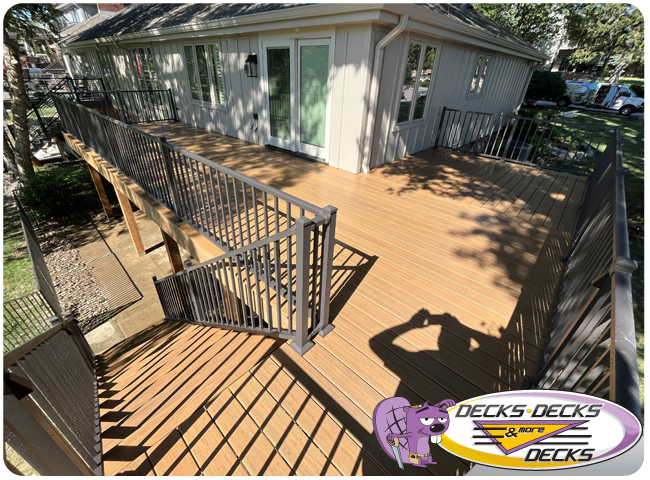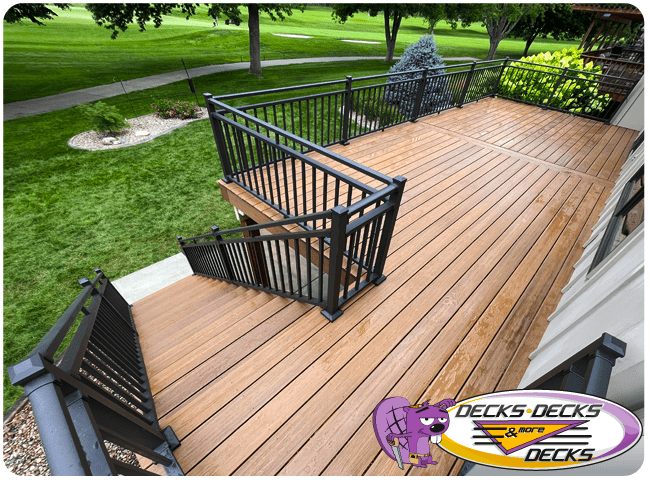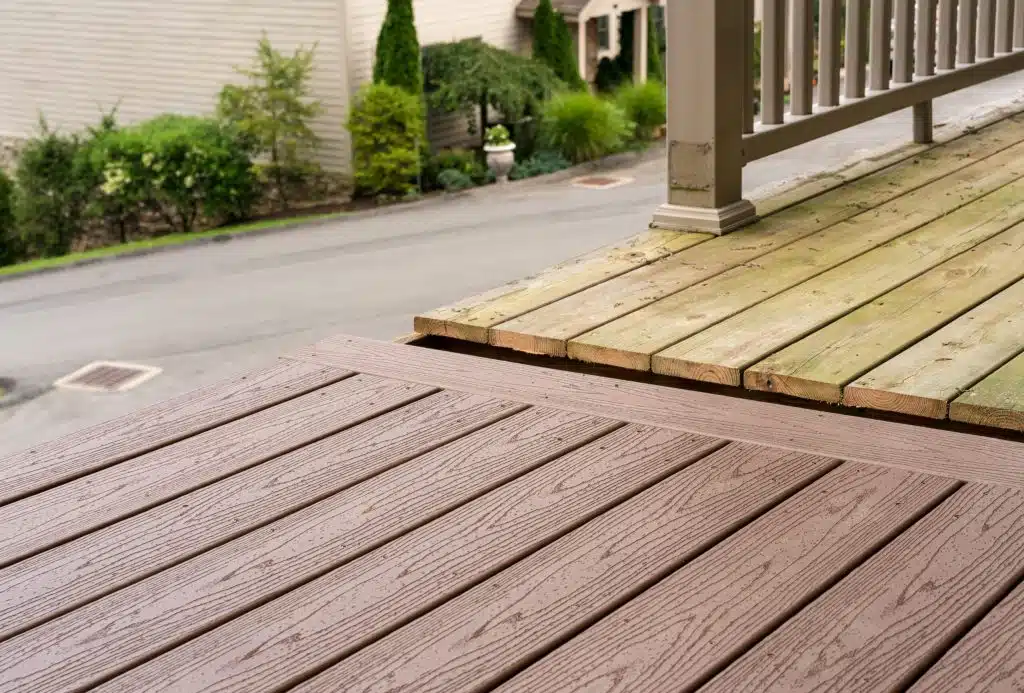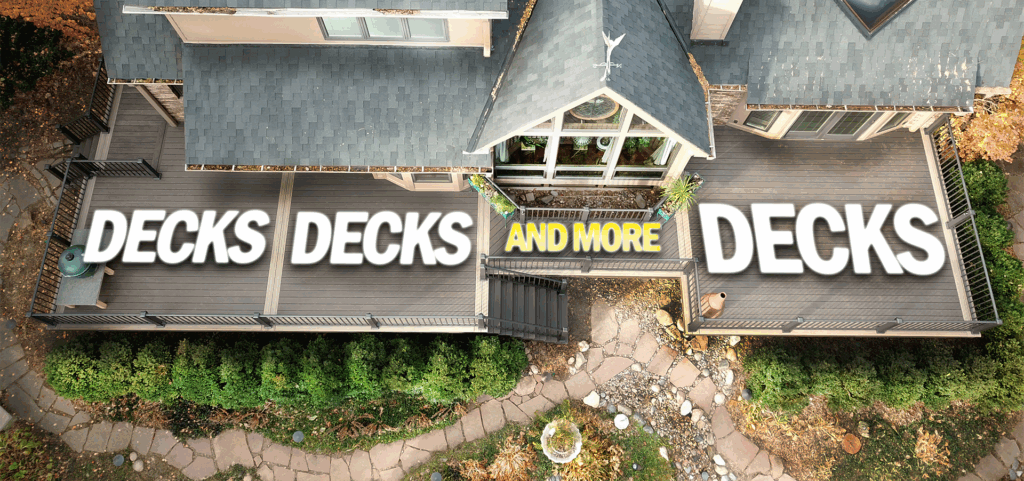Trex vs. Plastic Decking: A Comprehensive Breakdown
When choosing decking materials, Trex and plastic decking are two popular options that offer distinct advantages. Understanding the differences between these materials can help you make an informed decision that fits your needs, budget, and preferences. Here’s a detailed breakdown of Trex versus plastic decking to guide you in selecting the best option for your outdoor space.
Trex Decking
Overview: Trex is a leading brand of composite decking, which combines wood fibers and plastic to create a durable and low-maintenance product. Trex decking is known for its high performance and eco-friendly attributes.
Features:
- Material Composition: Made from a blend of reclaimed wood fibers and recycled plastic.
- Design Options: Available in various colors, textures, and finishes that mimic the look of natural wood.
- Durability: Resistant to rot, splintering, and insect damage; offers good resistance to fading and staining.
Benefits:
- Low Maintenance: Requires minimal upkeep compared to traditional wood decking. Cleaning with soap and water is usually sufficient.
- Eco-Friendly: Made from recycled materials, reducing environmental impact.
- Aesthetic Variety: Offers a wide range of design options to match different styles and preferences.
Considerations:
- Cost: Generally more expensive than standard plastic decking, with costs varying based on the product line and features.
- Heat Retention: Can become hot under direct sunlight, though some lines offer improved heat resistance.

Plastic Decking
Overview: Plastic decking, often referred to as PVC decking, is made entirely from synthetic materials. It is designed to provide a durable and low-maintenance alternative to traditional wood decking.
Features:
- Material Composition: Made from 100% PVC (polyvinyl chloride), providing a completely synthetic decking solution.
- Design Options: Available in various colors and finishes, though typically fewer natural wood-like options compared to composite decking.
- Durability: Highly resistant to moisture, mold, mildew, and insects; offers excellent durability and resistance to fading.
Benefits:
- Ultra-Low Maintenance: Requires very little maintenance; does not need staining or sealing.
- Moisture Resistance: Completely impervious to water, preventing issues like rot and warping.
- Long-Lasting: Generally offers a long lifespan with minimal wear and tear.
Considerations:
- Cost: Typically higher upfront cost compared to traditional wood, though prices can vary based on brand and features.
- Appearance: May lack the natural look and texture of wood, with fewer design options that replicate wood grain.
Comparing Trex and Plastic Decking
1. Material Composition and Construction:
- Trex: Composite material made from wood fibers and plastic.
- Plastic Decking: Made entirely from PVC or other synthetic materials.
2. Maintenance:
- Trex: Low maintenance; may require occasional cleaning with soap and water.
- Plastic Decking: Ultra-low maintenance; does not require staining or sealing.
3. Durability:
- Trex: Highly durable; resistant to rot, splintering, and insect damage; good resistance to fading.
- Plastic Decking: Extremely durable; resistant to moisture, mold, and mildew; excellent resistance to fading.
4. Aesthetics:
- Trex: Offers a wide range of colors and textures that mimic natural wood; available in various styles.
- Plastic Decking: Available in various colors and finishes but may lack the natural look of wood; fewer texture options.
5. Cost:
- Trex: Generally more expensive than traditional plastic decking; costs vary by product line.
- Plastic Decking: Can be more expensive upfront; prices vary based on brand and features.
6. Environmental Impact:
- Trex: Eco-friendly; made from recycled materials.
- Plastic Decking: Made from synthetic materials; less environmentally friendly compared to composite options.
Conclusion
Both Trex and plastic decking offer significant benefits and cater to different needs and preferences. Trex decking provides a natural wood-like appearance with low maintenance and eco-friendly attributes, while plastic decking delivers exceptional durability and minimal upkeep with 100% synthetic construction.
When choosing between Trex and plastic decking, consider factors such as budget, desired maintenance level, aesthetic preferences, and environmental impact. Evaluating these aspects will help you select the best decking option to enhance your outdoor living space.
Check Out This Blog!
 free estimates: (402) 690-1050
free estimates: (402) 690-1050


